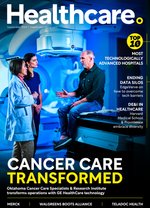Tracking disease with search data and web technology

Written by Linda Dailey Paulson
For healthcare professionals isolated by geography or resource constraints, there has often been a lag or complete lack of timely data about encroaching infectious diseases. In some of these instances, a little information can be immediately used for education, preventing the expense of ongoing treatment, as well as potentially avoiding fatalities.
Web-based search data in particular can be successfully used in the early detection and monitoring of various diseases. The genesis of these efforts can be traced to Google’s Flu Trends tool, which was developed by the company with the U.S. Centers for Disease Control and Prevention (CDC).
It often takes significant time and resources to actually collect, analyse, and report data. However, in 2008, Google researchers found that trending search terms can be indicative of actual events. They looked at official data from the CDC and found that there was a direct correlation between the spread of the disease and search terms such as ‘flu’.
After seeing how Google Flu Trends worked, researchers eager to use search trend data to find out more about public health have contacted the company. The result was Google Correlate, a new, experimental service designed to connect search analysis with real-life data. Google Correlate does not look at one single person’s search patterns, but examines patterns appearing in millions of Google queries.
From this, Google has created Dengue Trends. No vaccine or treatment for Dengue fever exists, which means prevention is critical and Google worked with HealthMap to develop its Dengue tool.
The Children's Hospital Boston and Google.org researchers say examining search data – specifically disease-related queries specific to dengue fever – could help public health officials respond quickly to areas of concern with mosquito control and disease prevention campaigns, such as education campaigns, to stem an outbreak. Dengue fever reportedly infects roughly 500 million people every year and 55 percent of the global population is currently at risk of infection, according to the researchers.
Data mining has been used by public health professionals for several years. HealthMap, which was established in 2006, is one of the pioneers in this area. This real-time tracking technology uses various online news sources to track emerging infectious diseases in both animals and humans. Some of the health situations being monitored this year include meningitis, whooping cough, equine herpes virus, a measles outbreak in Utah, and antibiotic resistance worldwide.
It is not only physicians and public health professionals who are interested in using these techniques to develop health-monitoring services. New consumer-related tools such as Sickweather are designed to mine data about illnesses using social media outlets such as Facebook and Twitter. Although still in Beta, Sickweather intends “to forecast the movement of everything from stomach bugs to chronic illness and other sickness, including depression,” so that users are able to monitor their health as well as health of friends and family, and -- most importantly -- remain well.
An overview of Google Flu Trends:
Linda Dailey Paulson is a medical and technology journalist who writes for Providian Medical Equipment, a leading provider of refurbished medical technology to hospitals and clinics all over the world.
Our magazine is now available on the iPad. Click here to download it.
- Nobel Prize Highlights AI's Revolutionary Role in HealthcareAI & ML
- Google DeepMind's AlphaFold 3 'is Drug Discovery Boost'Technology & AI
- Anthem appoints former Google executive to its AI divisionTeleHealth & COVID-19
- Aiva Health receives investment from Google’s Assistant Investment ProgramTechnology & AI

